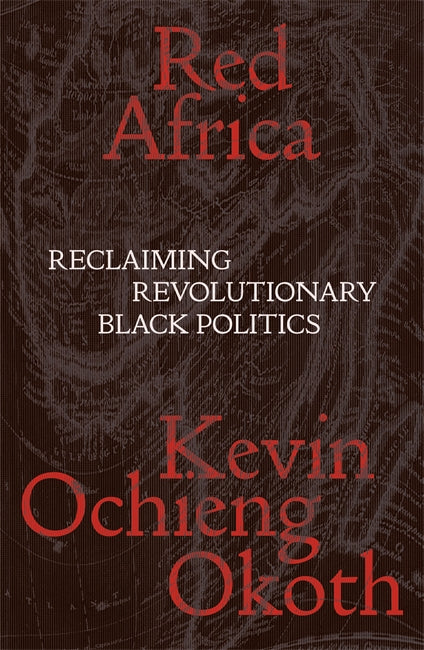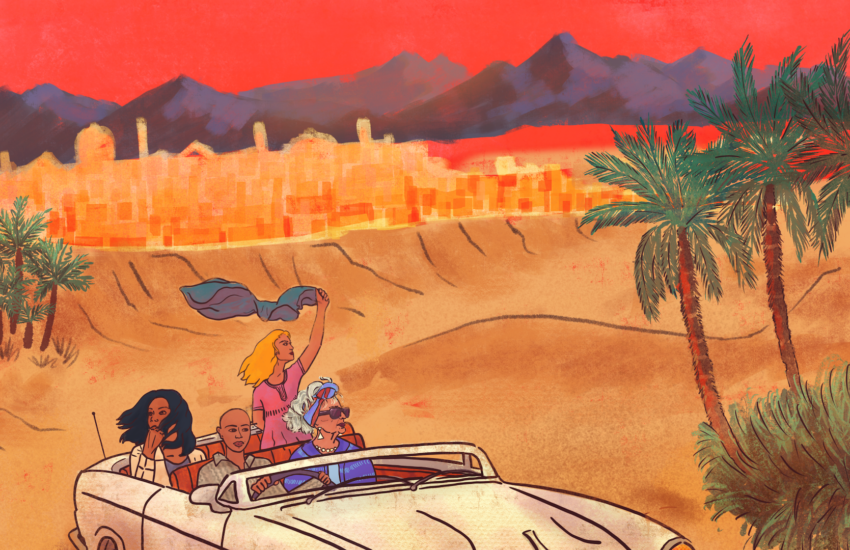Book Review: ‘Red Africa: Reclaiming Revolutionary Black Politics’ by Kevin Ochieng Okoth
Some time back in late 2023, I came across an interview with London-based writer and researcher, Kevin Ochieng Okoth, following the publication of his book Red Africa: Reclaiming Revolutionary Black Politics. Having often lamented what seemed to be the demise of African socialism, accelerated by the rise of neoliberalism, I was a captive audience. Impressed by Okoth’s knowledgeable and cogent intervention, I obtained a copy ASAP.
Okoth maintains that some contemporary conversations around Black radicalism and decolonisation (as opposed to anti-colonialism) suffer from wilful historical amnesia. This not only does a disservice to their ideological predecessors but proposes no real way forward. Red Africa aims to bridge the gulf.
According to Okoth, the latest iteration of what is known as Afropessimism – referred to as AP 2.0 – is to be distinguished from the paternally racist ideas for which the term was originally coined. That is, decontextualised notions of Africa as a perpetual basket case, attributed to inherent flaws in the African psyche. Needless to say, AP Part I deliberately overlooked the role of colonialism and the transatlantic slave trade.
Okoth traces the roots of AP 2.0 to the early 2000s work of University of California (UC) academics such as Jared Sexton and Frank B. Wilderson III. The latter had once been part of a tradition of black radicalism for which UC was known. However, by the time Wilderson and Sexton were fine-tuning their jaded theories, a widespread disillusion over the state of African-Americans had set in.
Okoth’s considered critiques of AP 2.0 are manifold. It is highly parochial for a start, subsuming myriad Afrodescendant experiences within that of those enslaved in the Americas; particularly North America. In addition to a reductive understanding of ‘blackness’, there’s an intrinsic helplessness and self-victimisation to the theoretical threads of AP 2.0, says Okoth… ‘Blackness is an eternal condition that precludes Black people’s participation in politics and condemns them to a life of social death’.
AP 2.0 perceives Marxism as yet another Eurocentric pursuit with little to offer Africa and its Diasporic offspring (although, as Okoth himself observes, this Marxo-scepticism is not limited to AP 2.0. bell hooks’ wariness of Marx springs to mind, for instance). One of the most worrying aspects of AP 2.0 as described in Red Africa, is its unbridled cynicism towards others racialised as non-white. Its proponents apparently believe there can be no unified struggle to overcome structural racism, since non-black racialised peoples are mere stooges of white supremacy. Wilderson for example, dubiously references a Palestinian acquaintance expressing disappointed surprise that Ethiopian Jews participate in Zionist oppression of his people. Wilderson reportedly offers no further context for his Palestinian friend’s observations, content to extrapolate from this exchange a generalised Afrophobia.
Over seven chapters, Okoth proceeds to address meticulously the fallacies of AP 2.0. Whilst not wholly unsympathetic to claims that Marx had blind spots, he points to clear examples of where the German theorist recognised the particular benefits of slave labour to Capitalism, as distinct from waged labour. Okoth believes the starting point of Black radical critiques of Marx is somewhat skewed. ‘…We should…[ask] not what Marx tells us about slavery but what slavery tells us about Marx’ he writes.
The author charts several hundred years of Black resistance; it’s various permutations, successes and failures, from the Haitian Revolution to Négritude. Okoth compares and contrasts the reformism of the likes of Julius Nyerere, Léopold Senghor and Kwame Nkrumah to the dynamic Afro-socialism of Amílcar Cabral, Agostinho Neto, Samora Machel and Andrée Blouin, amongst several others. These are the movements that best characterise the Red Africa tradition, Okoth asserts.
He argues convincingly that the reformism of the post-independence statesmen was more easily co-opted by neocolonialism. The sections on Senghor are especially eye-opening, and indicative of how the author is not afraid to complicate the narratives around African national heroes.
Okoth is keen to rescue readings of Franz Fanon from the anaemic interpretations of AP 2.0. He regrets how the Martinican polymath’s earlier work, the alienation expressed in Peau Noire, Masques Blanques (Black Skin, White Mask) is held in higher esteem by the Afropessimists than his more radical later writings (Les Damnés de la Terre/Wretched of the Earth). Regrettable but telling, claims Okoth. A depoliticised Fanon is less dangerous to the existing order. The author challenges the faux-radicalism of AP 2.0 and certain decolonisation discourses. Conceived in the comfortable, air-conditioned offices of academic institutions captured by neoliberal interests, these ideas either lend to excessive focus on the symbolic (decolonised aesthetics) or worse still, they engender apathy.
Okoth posits that this diluted version of Fanon is more popular amongst sections of the Western (and anglophone) Left than Cabral, precisely because it is considered more palatable. Yet there could also be other prosaic reasons for this disparity. Fanon was Francophone. Whilst Cabral was proficient in la langue de Molière, his working language was Portuguese. French is more widely spoken, not to mention more familiar to much of the Anglophone world. Fanon wrote at a time when French still enjoyed a certain international reach and prestige, before being replaced by English in the latter part of the 20th Century.
At less than a 150 pages, Red Africa is a significant achievement taking into account its scope. Okoth condenses enough information to support his arguments as well as to whet the appetite for further reading. The author synthesises his ideas with an enviable coherence. He is also intentional in foregrounding the contribution of Black women to revolutionary struggle, as well as contemporary discussions (both Adom Getachew and Stella Dadzie receive mentions, for instance).
Reservations remain few and far between. There is disappointingly little said about the slain Burkinabé visionary, Thomas Sankara or the female comrades that were indispensable to Cabral’s PAIGC party. And whilst it’s encouraging that Okoth spotlights the role of revolutionary women, his admiration of Blouin can be problematic in places. When Patrice Lumumba turns himself in to the authorities in exchange for his detained wife, Blouin perceives him as ‘weak’ . He was not prepared to abandon his spouse the way Blouin once abandoned her seriously ill child.
This perception of ‘weakness’ seems warped by patriarchal expectations (ironic given Blouin’s apparent tendency to buck gender norms). History is littered with (often male) freedom fighters and activists whose relationships were sacrificed at the altar of The Cause. Charity begins at home and victory is rarely, if ever, comprehensive. Ask those spouses and children if they consider it worth the sacrifice. No doubt the responses would be conflicted. Rather than readily commend Blouin’s position, at best we can say world-changers with domestic responsibilities face a heart-rending dilemma.
The Afterword is a measured reflection on recent movements within Africa and the Diaspora that had revolutionary potential not quite fulfilled; namely Nigeria’s #EndSars and the spread of BLM demonstrations worldwide. Whilst Okoth acknowledges that an in-depth examination is beyond the book’s remit, he does usefully link their shorter lifespan to some of the significant missteps and theoretical deficiencies already outlined.
However, unlike his pessimistic ideological counterparts, Okoth sees a chance to learn from both the failures and triumphs… ‘It is up to us to build a communism for our times out of the ruins of Red Africa…’
This is an edited version of a review that also appears on the I Was Just Thinking blog…



